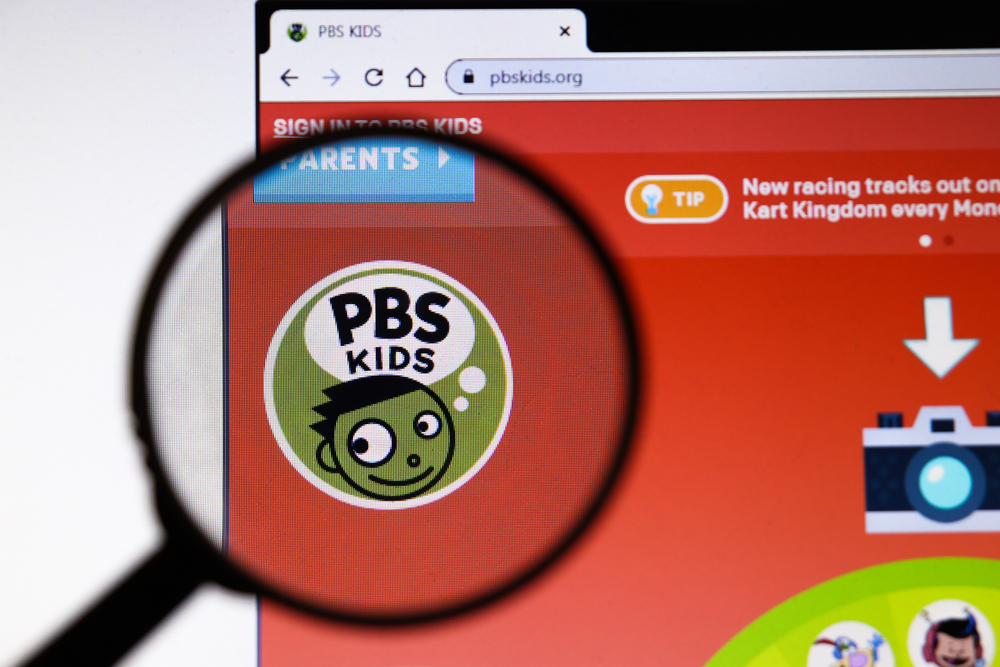You’ve likely heard jokes about Caillou on social media – they’ve fizzled out as of late, but you still hear them. What is the controversy with Caillou, though?
How did an adorable little kid earn such a bad reputation?
Is the show really as bad as everyone says, and if so, is that why it’s no longer on air?
We are going to dive into the Caillou controversy today to see if we can clear this show’s name and find out where it went.
Let’s get right to it.

What is Caillou?
Calliou is a Canadian cartoon that features an imaginative 4-year-old boy who goes on adventures (mostly imaginary) and learns to handle a variety of challenges.
The TV show is based on the books of the Canadian illustrator and educator, Hélène Desputeaux.
It first aired in French in 1997 and at the time of its final episode in 2010, it was airing in English on PBS.
As of 2022, new episodes of Calliou are no longer produced, though that is set to change. (Read on for more information about that!)
What is the controversy with Caillou?
His behavior
The controversy surrounding Caillou is related to how the main character on the show behaves.
Critics of the show claim that Calliou lacks discipline and behaves like a “spoiled brat”.
A common complaint of parents is that their children act out Calliou’s on-screen behaviors in real life after viewing the show.
Though Caillou’s behaviors are actually completely normal for a 4-year-old, parents don’t always appreciate these behaviors being presented to children that aren’t yet displaying them.
Some parents have also commented about the amount of whining Caillou does on screen.
This is a valid complaint, as whining has been confirmed by studies to be both distracting and irritating to adults.
The main controversy of Caillou, though, is his “bad” behavior.
We see this complaint with some of the newer shows, as well.
Bluey, for example, has a secondary character named “Muffin”. Muffin, like Caillou, is a 4-year-old that displays normal 4-year-old behaviors.
People, generally, seem intolerant of toddler and preschooler behavior being portrayed accurately.
His politics
Caillou is also a victim of political controversy, believe it or not.
PBS has actually been in the political crosshairs for quite some time.
Some lawmakers in the United States believe that PBS, the home to many beloved kids’ educational shows, should not receive public funding.
The 2012 U.S. presidential candidate, Mitt Romney, famously announced during a presidential debate that it was his plan to stop funding PBS with taxpayer money, and instead privatize it.
Despite the fact that privatizing PBS would likely impact children in poor regions of the country, many people agreed with the sentiment that the public should not fund PBS.
While no political figure has ever publicly spoken out about Cailou specifically, there is a country-wide bias against PBS, which naturally has the potential of tainting some people’s view of the show.
Pair this with the backlash against SEL (Social Emotional Learning) from some political groups and Caillou’s seemingly “bratty” behavior, and you’ve got a very hate-able kids’ show.
Is Caillou inappropriate?
Caillou is not inappropriate at all. In fact, the show is one of the most accurate representations of a 4-year-old child on TV.
Caillou’s behaviors often do call for adult intervention and guidance, and his parents seem to do their jobs appropriately.
There’s no cursing, unnecessary violence, or over-the-top negative behaviors from any character on the show.
Caillou’s behaviors
Caillou’s behavior is age-appropriate – crying, whining, disobedience, inability to share, etc.
All of these behaviors are developmentally appropriate for a preschool-age child.
Caillou has trouble sharing, throws “temper tantrums”, and whines a good bit when things don’t go his way.
Sometimes he’s even a little bit unkind to his little sister, Rosie.
Does this sound familiar to you? If you have a 4-year-old, it should.
Calliou’s parents’ behaviors
Not always, but in many Caillou episodes, Caillou’s parents demonstrate positive parenting techniques.
They often get down on his level and help him work through his big emotions.
There are times, though, like in the Circus episode (Caillou believed he was going to the circus but he had his days mixed up) when his parents are busy with the baby and dismissive of his feelings.
This might seem familiar to you, as well. We all have times wherein we’re distracted and not as attentive to our children’s feelings as we should be.
In the episodes where Caillou’s parents take the time to acknowledge his emotions, though, he’s better able to work through them.
In the Circus episode, however, when his very understandable confusion was dismissed, we see him throw himself down and really get upset.
There’s nothing inappropriate about his behavior or the show in general.
Why did they get rid of Caillou?
Despite all of the controversy surrounding Caillou, the show was never canceled for any of those reasons.
In 2021, PBS announced that it was canceling Caillou after more than 20 years on the air.
That’s a healthy run for a kids’ show – or any show, for that matter.
PBS didn’t give a reason for the cancelation, however, they did hint that other shows, like Daniel Tiger and Molly of Denali, had overtaken the show’s popularity.
Peacock, the streaming channel, does have some Caillou episodes available for viewing, as does YouTube.
It’s rumored that Peacock will start producing new Calliou episodes in 2023. These episodes are each set to be 11 minutes long.
Kids’ TV shows have come a long way since Caillou was popular. Today, we have programming choices that dive into difficult topics and give parents helpful parenting techniques.
Bluey is a good example of this.
Calliou, though, was a good show for its time.
If you are a Caillou-hater, I encourage you to go back and watch a couple of episodes with a new lens – that of a person who understands that his behavior was totally normal.
